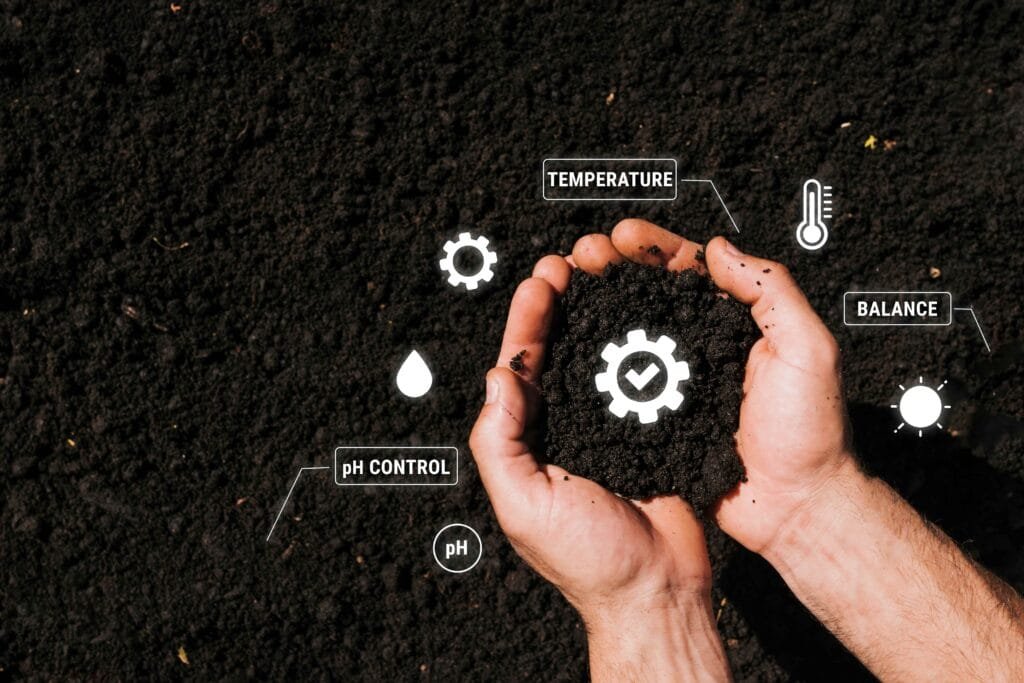
Best Soil Testing Kits for DIY Home Projects
Disclosure: We may earn money from the companies mentioned in this post, but we only recommend brands that we truly love and trust.
Best Soil Testing Kits for DIY Home Construction Projects
Introduction
Soil testing is one of the most critical steps in any DIY home construction project. The condition of your soil determines the stability of your foundation, influences drainage systems, and impacts the long-term durability of your construction. Fortunately, modern soil testing kits make it easier than ever to assess your soil’s suitability without hiring professional services. This guide explores the best soil testing kits for DIY enthusiasts, including pH testers, electronic soil moisture meters, and compact soil augers.
Why Soil Testing is Essential for DIY Home Construction
Soil quality directly affects the strength and stability of your construction. Here are key reasons why soil testing should be a priority:
- Foundation Stability: Poor soil conditions, such as high moisture or expansive clay, can compromise the integrity of your foundation.
- Drainage Optimization: Knowing soil composition helps you design effective drainage systems, preventing water-related damage.
- Cost Savings: Soil testing ensures you choose the right materials and techniques upfront, reducing costly repairs in the future.
Types of Soil Testing Kits and Their Uses
There are various soil testing kits designed for specific purposes. Here’s an overview of the most useful types:
pH Soil Testing Kits
- Purpose: Determines soil acidity or alkalinity, which influences material compatibility and plant health.
- Importance: Essential for assessing the chemical balance of your soil, particularly in areas where landscaping will occur.
- Example: Sonkir Soil pH Meter – A reliable and easy-to-use tool for accurate pH readings.
Electronic Soil Moisture Meters
- Purpose: Measures the water content in soil, providing quick and accurate readings.
- Benefits: Helps evaluate drainage capacity and prevents over-compaction during construction.
- Example: Atree Soil Moisture Meter – A lightweight, affordable option for moisture detection.
Compact Soil Augers
- Purpose: Allows for deeper soil sampling to examine compaction and texture.
- Ideal For: Testing at various depths for a comprehensive analysis.
- Example: XtremepowerUS Auger Drill Bit – Durable and designed for small-scale excavation.

Top 5 Soil Testing Kits for Home Construction Projects
- Luster Leaf Rapitest Soil Test Kit
- Features: Tests pH, nitrogen, phosphorus, and potash.
- Pros: Affordable, comprehensive results for DIY use.
- Cons: Requires manual mixing and interpretation.
- Sonkir 3-in-1 Soil Meter
- Features: Measures pH, moisture, and light levels.
- Pros: Multifunctional and budget-friendly.
- Cons: Limited depth for readings.
- AeroGarden Moisture Meter
- Features: Electronic device for quick moisture measurements.
- Pros: Compact and easy to use.
- Cons: Designed primarily for surface-level readings.
- XtremepowerUS Auger Drill Bit
- Features: Durable auger for deep soil sampling.
- Pros: Excellent for large projects requiring detailed soil analysis.
- Cons: Requires a compatible drill for operation.
- Environmental Concepts Professional Soil Test Kit
- Features: Comprehensive kit with professional-grade testing.
- Pros: Reliable results for detailed analysis.
- Cons: Slightly more expensive than basic kits.
How to Use Soil Testing Kits for Construction Projects
Preparing the Site for Testing
- Clear debris and vegetation from the test area.
- Identify multiple locations to collect diverse soil samples.
Interpreting Soil Test Results
- pH Levels: Neutral to slightly alkaline soil (pH 6.5-7.5) is ideal for most construction projects.
- Moisture Levels: Excessively wet soil indicates drainage issues, while dry soil may require pre-construction watering or compaction adjustments.
Using Soil Augers for Deep Sampling
- Insert the auger into the ground and rotate to extract soil.
- Collect samples at various depths to assess consistency and texture.
- Analyze the samples for compaction, moisture, and organic content.
Key Features to Look for in Soil Testing Kits
- Accuracy and Reliability: Ensure the kit provides consistent results.
- Ease of Use: Look for simple instructions and minimal setup.
- Durability: Select kits that withstand repeated use.
- Affordability: Balance cost with the quality of features and results.
Common Mistakes to Avoid When Testing Soil
- Inadequate Sampling: Testing only one location may lead to inaccurate conclusions.
- Timing Issues: Avoid testing after heavy rainfall or during dry spells.
- Ignoring Manufacturer Instructions: Proper usage ensures accurate results.
The Benefits of DIY Soil Testing vs. Professional Services
- Cost Savings: DIY kits are significantly cheaper than hiring a professional soil tester.
- Flexibility: Test multiple areas and conditions without scheduling conflicts.
- Accessibility: Kits are readily available and designed for non-experts.
Conclusion
Soil testing is an indispensable step in any DIY home construction project. With the right tools, such as pH soil testing kits, electronic moisture meters, and compact soil augers, you can assess your soil’s suitability and make informed decisions for a strong foundation. Investing in reliable testing kits not only saves money but also ensures your construction project’s long-term success. Explore homeprojectsupply.com to find the perfect tools for your next project, and bring your creative vision to life with confidence!
FAQs
- How often should I test my soil before starting a construction project?
At least once during key phases of the project or after significant weather changes. - Can I use the same soil testing kit for gardening and construction purposes?
Yes, but ensure the kit provides detailed results suitable for structural decisions. - What is the ideal pH level for soil in construction?
Neutral to slightly alkaline (pH 6.5-7.5) is generally ideal. - Are electronic soil moisture meters better than manual methods?
Electronic meters are faster and more accurate for precise readings. - Can I rely solely on a single soil test for my construction project?
No, testing at multiple locations and depths is crucial for comprehensive results.
